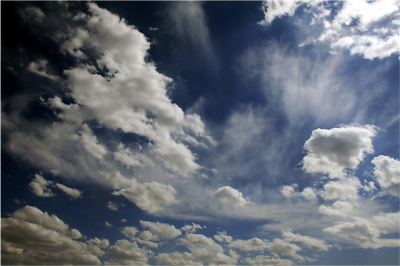All streams flow into the sea,
yet the sea is never full.
To the place the streams come from,
there they return again.
All things are wearisome,
more than one can say.
 Among the many wonders of Icelandic waters I experienced the past ten days – glaciers, geysers, waterfalls, rivers and ocean, the one that caught me most by surprise was the geo-thermal springs.
Among the many wonders of Icelandic waters I experienced the past ten days – glaciers, geysers, waterfalls, rivers and ocean, the one that caught me most by surprise was the geo-thermal springs.  |
| Photo "The Shepard" by Floriana Barbu |
 Ten of Asia’s largest rivers begin in the Himalayan glacial fields. It is the largest supply of frozen water on the planet after the two polar regions - sometimes called "the third pole". The ice-melt from these vast reservoirs helps feed over 2 billion people - a third of the earth. Psalm 104 celebrates God's power and love as demonstrated in fresh-water mountain streams.
Ten of Asia’s largest rivers begin in the Himalayan glacial fields. It is the largest supply of frozen water on the planet after the two polar regions - sometimes called "the third pole". The ice-melt from these vast reservoirs helps feed over 2 billion people - a third of the earth. Psalm 104 celebrates God's power and love as demonstrated in fresh-water mountain streams. 
 graze the stony river-bed, and procreate in quiet places while other fish come in from the ocean to spawn in ponds upstream; birds feed on the grasses or fish or insects; snakes and frogs, turtles and alligators and mammals large and small quench their thirst or satisfy their hunger from the river’s bounty. All these inter-act in a dynamic balance of Nature. All of them call the river ‘home’.
graze the stony river-bed, and procreate in quiet places while other fish come in from the ocean to spawn in ponds upstream; birds feed on the grasses or fish or insects; snakes and frogs, turtles and alligators and mammals large and small quench their thirst or satisfy their hunger from the river’s bounty. All these inter-act in a dynamic balance of Nature. All of them call the river ‘home’.  Centuries before Louis Armstrong painted “skies of blue and clouds of white” with his gravelly voice, artists and poets, children, lovers and scientists have stood speechless at the beauty of our elegant world.
Centuries before Louis Armstrong painted “skies of blue and clouds of white” with his gravelly voice, artists and poets, children, lovers and scientists have stood speechless at the beauty of our elegant world.  vibrant mountain springs spill out of the ground and course down through streams and rivers, lakes and wetlands. The song describes animals of every kind nesting by these waters and bird-songs whistling from the trees. It sings about forests, grain-fields and vineyards nourished and nourishing because of the rains that fall from the sky.
vibrant mountain springs spill out of the ground and course down through streams and rivers, lakes and wetlands. The song describes animals of every kind nesting by these waters and bird-songs whistling from the trees. It sings about forests, grain-fields and vineyards nourished and nourishing because of the rains that fall from the sky.